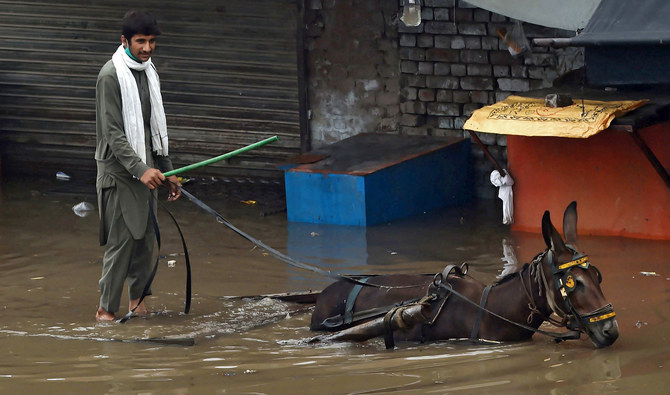Lahore, 27 June, 2023 (GNP): Lahore experienced an unprecedented weather event as it endured a staggering 260mm of rainfall within a span of just six hours. This torrential downpour, setting a new June record, led to urban flooding and posed significant challenges to the city’s infrastructure and residents.
The heavy rain, lasting for 6 hours and 47 minutes from 4:40 am to 9:11 am, resulted in stagnant water accumulating at 22 critical points across the city, causing significant traffic congestion and inconveniencing commuters for several hours.
Water and Sanitation Agency (WASA) recorded the highest rainfall at the Airport with 260mm, followed closely by Lakshami Chowk (256mm), Pani Wala Talab (254mm), Qurtaba Chowk (252mm), and Gulshan-e-Ravi (236mm), among others. Additionally, certain areas experienced intense pounding, with Bhatti Gate, Lakshmi Chowk, and Qurtaba Chowk enduring rainfall up to 32 inches.
Also Read: Geneva funds for flood-hit areas in Pakistan.
Ch Aslam, the Director of MET Lahore, highlighted that this extraordinary rainfall broke the previous June record of 224mm set in 2011. With four days remaining in the month, there is a possibility of further rains, potentially raising the bar for June rainfall in Lahore.
As per meteorological experts, this recent spell of rain marks the beginning and end of the pre-monsoon season, with the official monsoon season expected to commence on July 1, 2023. Gusty winds, reaching speeds of 130 km/h, were also witnessed on the previous Sunday, accompanied by high humidity levels exceeding 81 percent.
The meteorological officials attributed the heavy rainfall to a seasonal low over northeast Balochistan and the influence of a westerly wave affecting the upper and western regions of the country. They have predicted the continuation of dust-thunderstorm and rain in Punjab, Islamabad, Pothohar region, Khyber Pakhtunkhwa, northeast Balochistan, Kashmir, and Gilgit-Baltistan. Numerous cities experienced heavy rainfall, including Sialkot, Jhelum, Gujrat, Rawalpindi, Islamabad, Mangla, and many others.
Also Read: Flood brings famine for Pakistan.
In response to the unprecedented rainfall and subsequent urban flooding, WASA’s management, led by Managing Director Ghafran Ahmed, swiftly mobilized efforts to clear the roads and mitigate the impact on the affected areas. Ghafran Ahmed, accompanied by Commissioner Lahore Muhammad Ali Randhawa, personally inspected the low-lying areas, drainage systems, and deployment of necessary equipment.

